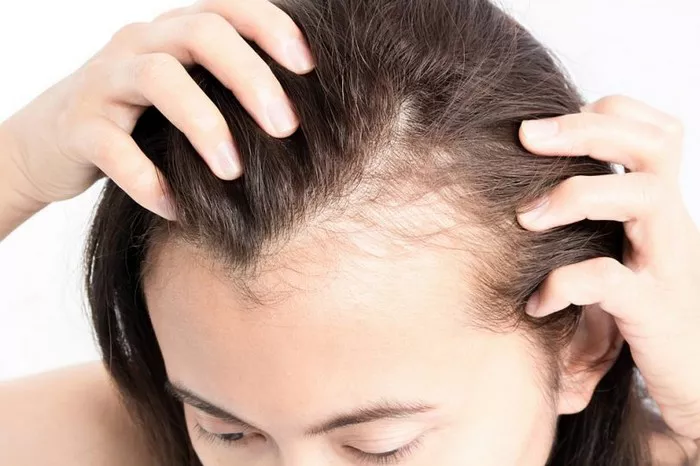Hair loss can be a distressing experience, and its causes can be diverse. Surprisingly, medications, which are often prescribed to improve health, can sometimes be the culprits behind hair loss. In this comprehensive guide, we will delve into the world of medicines and their potential to cause hair loss, providing valuable insights into understanding this phenomenon and what you can do about it.
Medications That May Trigger Hair Loss
Hair loss linked to medications is a condition known as drug-induced alopecia. It’s essential to recognize which medications are more likely to contribute to this issue:
1. Chemotherapy Drugs: These powerful medications target rapidly dividing cells, which include hair follicles. Hair loss is a common side effect of chemotherapy.
2. Blood Thinners (Anticoagulants): Some anticoagulant drugs, like heparin and warfarin, may lead to hair thinning.
3. Antidepressants: Certain antidepressants, such as fluoxetine and sertraline, are associated with hair loss.
4. Antibiotics: Antibiotics like trimethoprim-sulfamethoxazole can contribute to hair loss in some cases.
5. Acne Medications: Isotretinoin, often used to treat severe acne, has been linked to hair thinning.
See Also: Hair Loss After Gastric Sleeve Surgery: Effective Strategies
Do drugs really cause hair loss?
Drugs can indeed cause hair loss in some cases. This phenomenon, known as drug-induced alopecia, occurs when certain medications disrupt the natural hair growth cycle, leading to hair thinning or loss. The mechanisms behind medication-induced hair loss can vary and may include the disruption of the hair growth cycle, toxic effects on hair follicles, or hormonal changes. Not everyone who takes medications will experience hair loss, and the severity of the issue can vary. It’s crucial to consult with a healthcare provider if you suspect a medication is causing hair loss, as they can evaluate your situation and provide guidance on potential alternatives or management strategies.
How to Treat Drug-Induced Hair Loss?
While hair loss due to medications can be concerning, there are steps you can take to manage it:
1. Consult Your Healthcare Provider: If you suspect a medication is causing your hair loss, consult your healthcare provider. They can evaluate your situation and recommend potential alternatives.
2. Supplements: In some cases, supplements like biotin may help strengthen hair and minimize the impact of medication-induced hair loss.
3. Topical Treatments: Minoxidil, a topical solution, is FDA-approved to promote hair regrowth and may be considered in consultation with your healthcare provider.
Is hair loss temporary or permanent?
It’s important to note that not everyone who takes medications will experience hair loss. In many cases, hair loss due to medications is temporary and reverses once you stop taking the offending drug. However, this should always be discussed with your healthcare provider.
Preventive Measures and Considerations
If you’re concerned about potential hair loss due to medication, consider the following preventive measures:
1. Open Communication: Always communicate openly with your healthcare provider about your concerns regarding side effects, including hair loss. They can help you explore alternative treatments.
2. Research: Before starting a new medication, research potential side effects, including hair loss, so you’re aware of what to expect.
3. Supplement Guidance: If you’re taking supplements alongside medications, consult your healthcare provider to ensure there are no interactions that could exacerbate hair loss.
Coping with Hair Loss Emotionally
Experiencing hair loss can be emotionally challenging. It’s important to remember that your self-worth is not tied to your hair. Seek support from friends, family, or a therapist if you’re struggling with the emotional impact of hair loss.
In conclusion
Understanding which medications can cause hair loss and how to manage this side effect is crucial for those who may be at risk. Open communication with your healthcare provider, thorough research, and proactive measures can help you address medication-induced hair loss effectively while ensuring you receive the necessary treatment for your health condition. Remember, you are not alone in facing this challenge, and there are resources and support available to help you cope with the emotional aspects of hair loss.


